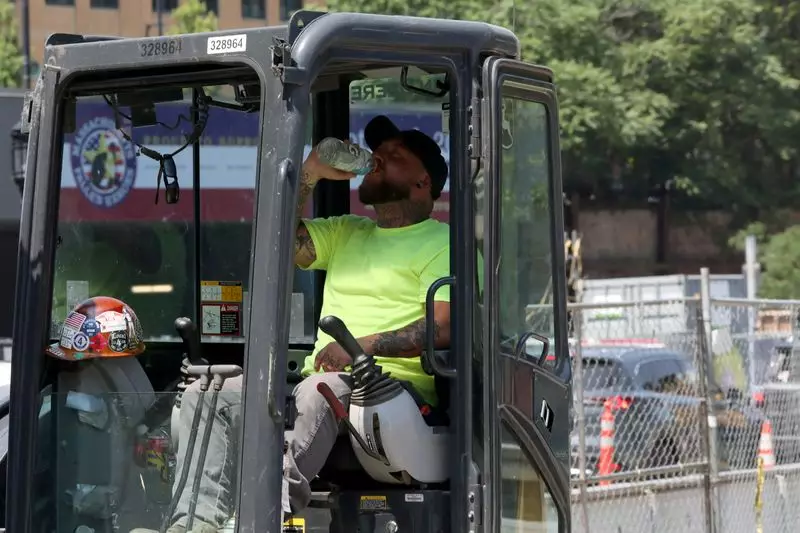The construction industry is facing challenges due to extreme heat waves, leading to a slowdown in projects. According to Art Hogan, chief market strategist at B. Riley Wealth, what typically takes two days can now take three or four as builders need to take more breaks. To combat the effects of the heat, some companies are considering shifting work hours earlier in the day. While this may prolong projects, it is essential to ensure the safety and well-being of workers. Additionally, retailers selling construction supplies like Home Depot and Lowe’s may see a slight impact, but since builders often buy in advance, the overall impact is likely to be limited.
Crude Oil Industry
The extreme heat is also impacting the oil industry, particularly oil refineries. Despite being designed to withstand high temperatures, efficiency drops during heatwaves. Macquarie Group estimates that extreme weather conditions can cost the oil industry between 1.5% and 2% of refining throughput per year. Refiners are implementing strategies such as limiting outdoor work time for employees, setting up hydration stations, and adjusting work shifts to cooler hours. Workers in such conditions can only spend a limited amount of time working before needing breaks to ensure their safety.
In the retail sector, extreme heat can lead to increased demand for heat-friendly clothing, fans, and air conditioners. Retailers, like Amazon, are adjusting their delivery routes on hot days to allow drivers more time to cool off. Additionally, the Teamsters union is advocating for better protection for workers during heatwaves. Adapting to the changing climate is crucial for the well-being of employees and the efficiency of operations.
Extreme heat poses challenges for the transportation industry as well. Airplane wings generate less lift in high temperatures, leading to potential flight delays or cancellations. Railroads may also face issues such as track warping and engine damage due to heat. Adapting to these challenges requires careful planning and adjustments to ensure the safety of passengers and the integrity of transportation systems.
Companies with large manufacturing and warehousing facilities are implementing strategies to combat extreme heat. From cooling systems to misting and ample water supply, these companies are prioritizing the well-being of their employees. For instance, Spirit AeroSystems uses a water-cooled system to keep temperatures in its factories at a comfortable level without impacting production. Ensuring a safe and comfortable work environment is essential for sustaining operations during heatwaves.
The agriculture sector faces unique challenges during heatwaves, especially in regions like California’s central valley. While modern farming practices mitigate some risks, manual labor-intensive tasks like grape harvesting can be particularly challenging. Farmers are taking steps to provide extra water, shade, and reduce working hours to protect both crops and workers. Adapting to changing weather patterns is crucial for maintaining agricultural productivity.
Technology Industry
In the tech industry, maintaining data centers during extreme heatwaves is essential to ensure uninterrupted operations. With the growing demand for artificial intelligence and power-hungry microchips, companies are investing in backup generators to keep data centers operational. Digital Realty, among others, emphasizes the importance of preparedness in managing heat-related challenges in the tech sector.
As industries continue to adapt to the challenges posed by extreme heatwaves, prioritizing the safety and well-being of employees, implementing innovative solutions, and planning for future climate changes are crucial to sustaining operations and enhancing resilience.

